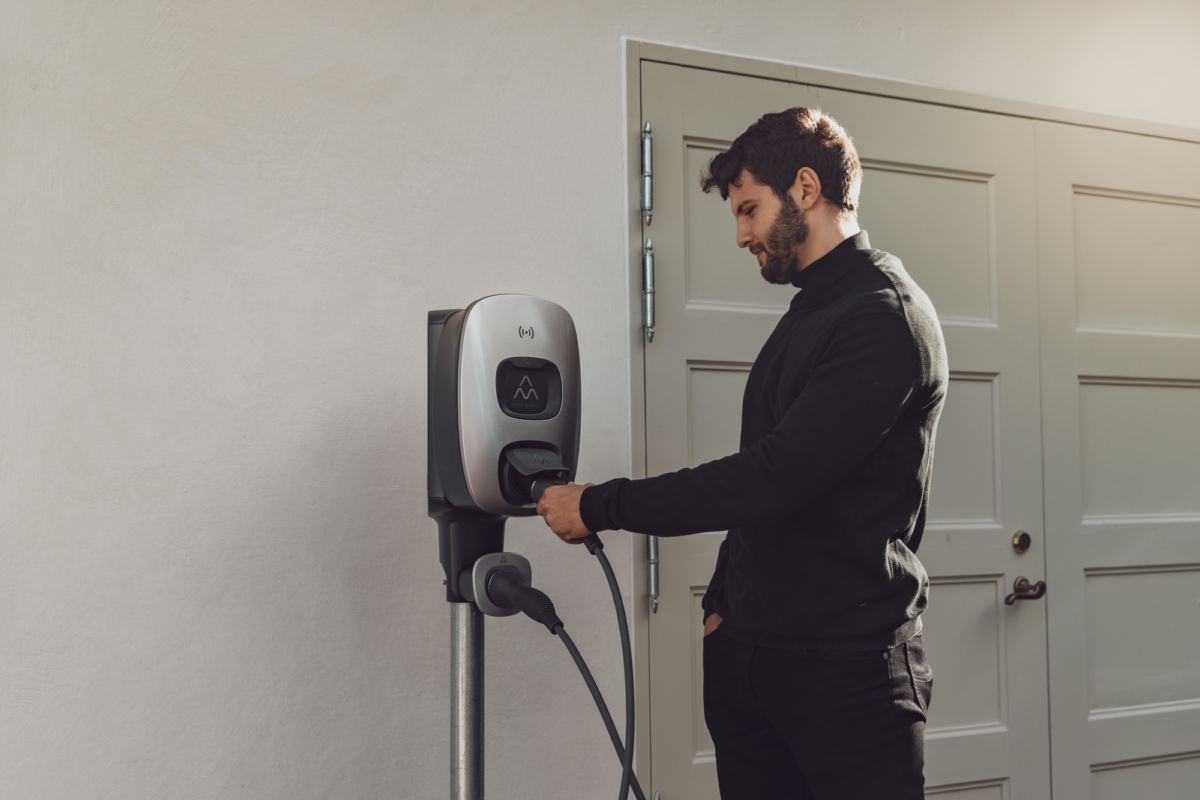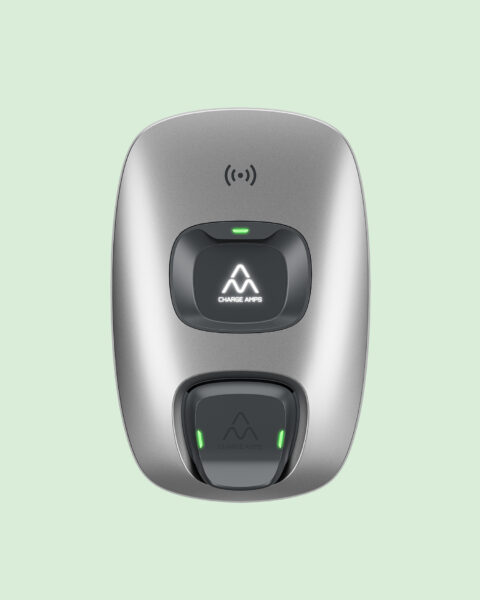Charge Amps Taps Renewable Lexan PC for EV Chargers

SABIC grade helps producer reduce carbon emissions in molded housings
There are many designs for electric vehicle (EV) chargers. Most make broad use of plastics in housings and other components for design flexibility, aesthetics, fabrication efficiency and ease of use. Resin producer SABIC is taking this a step further by supplying a certified renewable grade of Lexan polycarbonate (PC) from its TruCircle portfolio of circular resins to Charge Amps, of Solna, Sweden, a producer of charger systems.
The objective here is to manufacture a charger that will itself help to reduce carbon emissions through use of circular resins that are either repolymerized by advanced recycling or derived from biobased feedstock that is not in direct competition with human food chains. TruCircle resins include PC as well as certified renewable grades of polyethylene and polypropylene, also produced from biobased feedstock.
Circular Resins Helps Reduce Carbon Emissions

Charge Amps specified certified renewable Lexan PC from SABIC for its Dawn EV charger housing.
The TruCircle Lexan PC grade allows Charge Amps to reduce CO₂ emissions in the manufacture and installation of its Dawn charger housings, which meet EVSE (Electric Vehicle Supply Equipment) regulations, a standard in many regions.
The Lexan grade has the performance benefits of PC, as well as durability and weather and flame resistance (FR) and provides manufacturing cost reductions. It enables Charge Amps (and other charger makers) to simplify production by using injection molding and to eliminate the secondary operations required for metals.
On top of circularity gains, EV charger manufacturers benefit from increased functional integration and design freedom with TruCircle PC. For example, inner panels, indoor cabinets and consoles can be produced from flame-retardant PC to achieve dimensional stability, high impact resistance and aesthetic finishing. Moreover, a thin-wall FR capability can help reduce weight beyond that achieved by replacing metal and free space for additional components.
Smart Charger Connects to Cloud and to App
Dawn is Charge Amps’ latest charger. For installation in private and public spaces, the “smart charger” has a charging capacity of 22 kW in one socket, a certified MID (Measuring Instrument Directive) meter to measure and display actual charging consumption, and 4G connectivity. The charger is connected to the Charge Amps Cloud and Charge Amps app, which let the owner take control over charging and benefit from the company’s intelligent charging solutions. Dawn also has a powerful Linux processor that handles large amounts of data.
The Dawn chassis contains around 50 percent of ISCC PLUS certified biobased renewable material from SABIC and has four main polymer components: front piece, charging unit, MID meter and backplate.
The collaboration with Charge Amps focuses on sustainability throughout the production chain and is, SABIC says, an example of its commitment to help accelerate the global shift to EVs, as evidenced in the company’s BlueHero initiative.
SABIC Accelerates EV Acceptance With BlueHero
BlueHero is touted as an expanding ecosystem of materials, solutions, expertise and programs from SABIC designed to help accelerate the global energy transition to electric power and support climate change goals. The starting point, SABIC states, is to support the automotive industry’s efforts to create better, safer and more efficient EVs, with an emphasis on optimizing structural battery components with innovative FR materials and product development expertise.
In August, Charge Amps was acquired by NaaS Technology Inc., of Beijing, a Chinese company that specializes in EV charger systems. Charge Amps said at the time that it saw the acquisition as an opportunity to expand its business and technology.
NaaS Technology is reportedly the first U.S.-listed EV charging company in China. According to third-quarter financial data released on Oct. 25, as of Sept. 30, NaaS had connected 767,611 EV chargers covering 73,710 charging stations, up by 76 percent from 436,296 and 65 percent from 44,767, respectively, in the same period last year.
